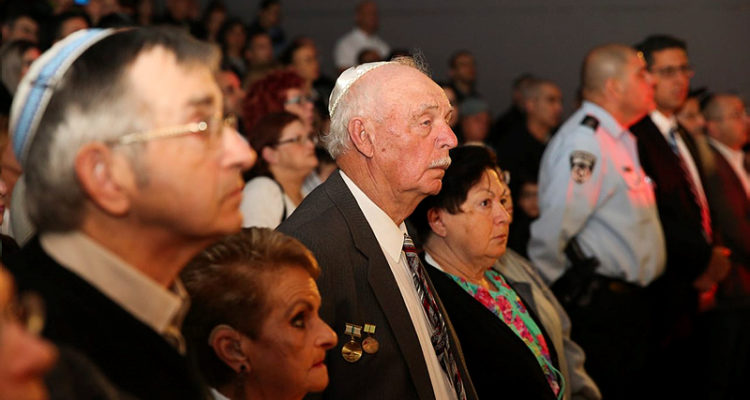Despite the lasting damage, survivors said that they were “satisfied with their personal and professional life after the war.”
By World Israel News Staff
The stress of surviving the Holocaust has been shown to have a lifelong negative impact on the brain structure of survivors, as well as potentially impacting their offspring and grandchildren, according to a study presented at the 5th European Academy of Neurology Congress in Oslo.
It found that surviving the Holocaust had a life-long “psychological and biological effect with grey matter reduction affecting the parts of their brain responsible for stress response, memory, motivation, emotion, learning, and behavior,” according to Prof. Ivan Rektor, head researcher at the Centre for Neuroscience of Masaryk University in the Czech Republic.
He told the congress that using MRI scanning, the study looked at the brain function of 56 people with an average age of 79-80, comparing 28 Holocaust survivors with 28 others of a similar age who had not been directly exposed via personal or family history to the Holocaust. Survivors showed a significantly decreased volume of grey matter in the brain, he said.
The study differentiated between survivors above and below the age of 12 years in 1945, said Prof. Rektor, and found that the reduction in grey matter was significantly “more expressed” in younger survivors, which may be attributed to the “higher vulnerability to a stressful environment of the developing brain in childhood,” he added.
Despite the lasting damage, survivors said that they were “satisfied with their personal and professional life after the war,” according to the researcher.
His team reports that it is now investigating the impact of the Holocaust on the children and grandchildren of survivors and that early results show reduced connectivity among the children, as well, between structures of the brain involved in the processing of emotion and memory.
Further research is set to identify “biomarkers of stress resilience and post-traumatic growth” and to determine whether transmission to offspring is based on behavioral and psychological factors or on genetic factors, the researchers say.
“Our hope is that these findings and our ongoing research will allow us to understand more about the effect of these experiences in order to focus therapy to support survivors’ and their descendants’ resilience and growth,” said Prof Rektor.
“We may also reveal strategies that Holocaust survivors used to cope with trauma during their later lives and to pass on their experience to further generations,” he added.
.





